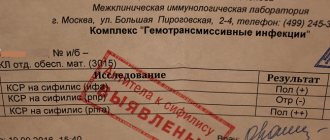Vaccination, or, as it is also called, inoculation, is the process of introducing a vaccine into the body. Vaccines historically got their name from the Latin word vacca, meaning cow. In 1798, the English physician Jenner noticed that if the contents of a cow's pox were injected into a person's skin, he would not get smallpox.
Vaccines are drugs that help create artificial specific immunity acquired during the vaccination process and necessary to protect the body from a specific pathogen.
Vaccines are made through complex biochemical processes from microorganisms, their metabolic products or individual components of a microbial cell.
A vaccine preparation containing certain doses of the pathogen, once in the human body, collides with blood cells - lymphocytes, resulting in the formation of antibodies - special protective proteins that remain in the body for a certain period of time. This could be a year, five years or more. This is associated with the need for repeated vaccinations - revaccination, after which stable long-term immunity is formed.
During a subsequent “meeting” with a pathogenic microorganism, antibodies recognize it and neutralize it, and the person does not get sick.
Each country in the world has its own calendar of preventive vaccinations. In our country, until recently, it included seven infections: tuberculosis, diphtheria, tetanus, whooping cough, measles, mumps (mumps) and polio. Since 1997, two more vaccines have been added to the compulsory vaccination schedule - against hepatitis B and rubella.
Vaccination is a preventive measure designed to protect against an infectious disease. Thanks to vaccination, many diseases have become completely harmless; we learn about the existence of some of them only from medical textbooks.
The first vaccination was carried out in 1796. The English doctor E. Dhenner inoculated several patients with cowpox, as he noticed that people who had cowpox did not get smallpox. The last case of smallpox was reported in 1977.
Infection is the introduction of pathogens into the human body, accompanied by a complex of reactive processes. After the penetration of microbes, the body begins to “protect itself” - it produces antibodies that actively “fight” pathogens.
After an infection, antibodies remain in the body, i.e. immunity is developed. If pathogens of the same disease enter the body again, antibodies neutralize them. A person who has suffered a certain infectious disease develops immunity to it, i.e. its natural “vaccination” occurs.
After suffering from certain diseases, lifelong immunity is developed. Sometimes vaccination must be repeated several times to develop lasting immunity.
Some vaccines only last for a few years and therefore need to be repeated. Before doing this, you should consult your family doctor.
Types of immunization
The basis of any vaccination is the use of natural mechanisms occurring in the human body’s immune system. A person is injected with either weakened pathogens of a certain infectious disease, as a result of which the body begins to produce antibodies (active immunization), or immediately ready-made antibodies against a given disease (passive immunization).
Active immunization is the administration of a vaccine to form long-term protection for the body. Live vaccines are contraindicated in patients receiving immunosuppressants, fever, or pregnancy.
When carrying out active immunization, the following is used:
- live
- or non-live vaccines.
Live vaccines are pathogens that have retained the ability to reproduce, but their effect is very weak. This vaccine is used against smallpox, polio, tuberculosis, yellow fever, measles, rubella and mumps.
A non-live vaccine contains pathogens that cannot reproduce but remain active enough to produce antibodies in the body. This vaccine is used to vaccinate against cholera, typhoid, paratyphoid, whooping cough and influenza.
There are vaccines against diseases whose pathogens produce poison (toxin). Such pathogens primarily include the pathogens of diphtheria and tetanus. The toxins they produce are neutralized and converted into toxoids used as vaccines.
Passive immunization creates temporary immunity in the body by introducing foreign immune substances such as antibodies. Doctors often use this type of immunization when they suspect tetanus.
Passive immunization weakens a possible infection, while active immunization protects against future infection. If diphtheria is suspected, simultaneous immunization is also used. Sometimes autovaccination is used for infectious diseases. An autovaccine, prepared by isolating bacteria from a sick individual and culturing them, is reintroduced to the patient to stimulate the formation of antibodies.
Passive immunization based on the introduction to the patient of foreign antibodies taken from vaccinated people or animals. The effect of such a vaccine begins in a few hours and ends after four weeks, since foreign antibodies, having entered the human body, are broken down.
Passive immunization is usually used in cases where a person has already become infected with a certain disease or the likelihood of infection is very high. A classic example of the use of passive immunization is vaccination against rabies.
Passive immunization does not protect against a specific disease, but only softens its course. Immune sera used to treat tetanus, measles, rubella, mumps, hepatitis and rabies are obtained from vaccinated people. Animal immune serum is used to treat diphtheria, botulism, gas gangrene, and poisoning by snake venoms.
A combination of immediate but short-lived immunity through passive immunization and long-lasting immunity through active immunization is possible. This type of immunization is called simultaneous immunization.
When is vaccination necessary?
The answer to this question mainly depends on the circumstances of the individual person's life.
At-risk groups
People who have to stay outdoors for a long time need to be vaccinated against tick-borne encephalitis.
Agricultural and forestry workers should be vaccinated not only against tetanus, but also against all zoonotic diseases.
People with weakened immune systems are advised to get flu shots.
If you are going to visit tropical countries, find out what diseases you need to be vaccinated against.
Vaccination of children
Children must be vaccinated against childhood infectious diseases. Vaccinations are recommended in accordance with a special vaccination schedule for children.
Is vaccination dangerous?
In children, the vaccine often causes a mild vaccine reaction, for example, a slight increase in body temperature, moderate soreness, redness and swelling at the injection site, and loss of appetite. Severe lesions are less common and are usually seen in children with chronic illnesses.
Such children are vaccinated in a hospital under the supervision of a doctor.
The most dangerous is passive immunization, when used, a foreign protein enters the patient’s body. If you have hypersensitivity to a foreign protein, serum sickness may occur. In mild cases, symptoms of serum sickness such as enlarged lymph nodes and urticaria are observed. In addition, allergic shock is possible, which is a common cause of death for the patient.
Who pays for vaccination costs?
Some vaccination costs (for example, for routine childhood vaccinations or tetanus vaccine in case of injury, etc.) are partially covered by the health insurance fund. Other special vaccines, for example, when traveling abroad, must be paid for independently.
Vaccination when traveling abroad
Before traveling to exotic tropical destinations (such as African or South American countries), you should obtain detailed information about required and recommended vaccinations.
The World Health Organization annually publishes requirements for the immune status of immigrants for all countries.
To clarify information about vaccinations, you can contact the embassy of a specific country.
National calendar of preventive vaccinations
Approved by Order of the Ministry of Health of the Russian Federation dated March 21, 2014 N 125n “On approval of the national calendar of preventive vaccinations and the calendar of preventive vaccinations for epidemic indications.” Annex 1
Immunization of the population in our institution
In Kerch Hospital No. 1 there is a treatment room No. 29, where immunization of the population is carried out.
All vaccinations are carried out free of charge, after consultation with a specialist doctor.
Invitations for vaccinations are carried out by local services, medical examination rooms, and preventive rooms.
Head outpatient department of clinical hospital No. 1 - Sharonova Irina Nikolaevna
Read also:
- Vaccination safety
- The procedure for professional vaccinations for citizens
- Vaccination. What you need to know
- Immunoprophylaxis of infectious diseases. Memo
- WHO. False ideas about vaccination
- “On immunoprophylaxis of infectious diseases”
- Recommendations for travelers
- National calendar of preventive vaccinations
- April 24-30 – World Immunization Week 2021
- Vaccine-preventable diseases
- Legislation on vaccine prevention for adults in the Russian Federation
- List of works requiring mandatory professional vaccinations
- Refusal to vaccinate
- Contraindications to vaccination
- Risk factors of the labor process and vaccination of the adult working population
- Vaccination against measles, rubella, chickenpox
- Vaccination against tick-borne encephalitis
- Vaccination against hepatitis B
- Vaccination against diphtheria and tetanus
- Vaccination against hepatitis A
- Vaccination against pneumococcal infection
- Flu vaccination
- Do you know what a vaccination is?
- European Immunization Week 2021: Vaccines deliver results!
- Vaccination against measles, rubella, chickenpox
What is active and passive immunity
A person can obtain antibodies in various ways. Antibodies enter the body passively through the placenta during pregnancy, with mother's milk after birth, or during emergency immunization with ready-made immunoglobulins. Such immunity is unstable and needs to be “renewed” quickly: antibodies protect only while they circulate in the bloodstream. They do not reproduce on their own.
Active immunity occurs after an infectious disease or vaccination, since entry into the body of the pathogen itself or its fragments triggers the formation of new colonies of B-lymphocytes. These cells quickly synthesize antibodies and protect the body. So a person either does not get sick or suffers the infection easily.
The duration of active protection depends on the type of pathogen, so a person can suffer some diseases only once, while others occur repeatedly. The same statement is true for vaccinations: some vaccines are administered 1-2 times throughout life (for example, measles, rubella vaccination), while others require revaccination after a certain period of time (for example, diphtheria, tetanus - every 10 years).
Important information about vaccination
When thinking about whether to vaccinate themselves or their children, adults worry about the safety of the drugs, are interested in possible contraindications, and believe that the national calendar is “overloaded.”
How safe are vaccines? Vaccines usually contain the following components:
- Antigen. This can be a live, killed form of a virus, bacteria or fragments of a pathogen. This component “teaches” the immune system to recognize the enemy and produce antibodies against it.
- Preservatives and stabilizers to protect antigens during transportation or storage. There are vaccines without preservatives; they are used in pediatric practice.
- Some drugs contain adjuvant substances that enhance the immune response.
Each vaccine goes through several stages of clinical research: safety, metabolism, methods of elimination, frequency and severity of undesirable effects are studied. Next, immunogenicity is assessed - the ability to stimulate the synthesis of antibodies in response to administration. This parameter indicates the effectiveness of the drug and is estimated as a percentage. For example, when a flu vaccine is administered, antibodies are produced in 95% of those vaccinated. The higher the immunogenicity, the greater the likelihood that the population will be protected from an epidemic of the disease.
A safe and effective vaccine can be allowed into mass production and recommended for use. After drug approval, clinicians continue to monitor for adverse effects.
Popular hypotheses about the connection between vaccinations and diseases such as autism, cerebral palsy, and epilepsy have no scientific confirmation. Often, severe mental and neurological disorders first manifest themselves after 1 year of age, regardless of whether the baby has been vaccinated or not.
Is it possible to get vaccinated during pregnancy?
Pregnancy in itself is not a contraindication for vaccination. A distinction should be made between routine and emergency vaccinations.
Seasonal influenza vaccination is routinely recommended. So the flu vaccine is not only allowed, but also recommended. It reduces the likelihood of a baby getting sick in the first six months of life by 60-65%.
In an emergency, therapeutic and prophylactic vaccination against rabies is possible in case of animal bites. The doctor weighs the dangers of vaccination against the risk of developing a deadly disease.
Vaccination is the most effective and safe way to protect adults and children from dangerous infections. The list of recommended vaccines is indicated in the National Vaccination Calendar. You can find out more information about the procedure for administration, rules for preparing for vaccination and possible undesirable effects from your doctor.
When should you refrain from vaccination?
Some people should delay vaccination or avoid it entirely. Temporary contraindications include:
- treatment of cancer (course of chemotherapy);
- decompensation of severe chronic diseases;
- acute infectious diseases;
- pregnancy and breastfeeding (but not all vaccines, for example against influenza, can be vaccinated in the 2-3 trimester of pregnancy);
- period less than 1 month from the last vaccination.
But there are also conditions in which vaccination can cause harm to health. This:
- autoimmune diseases;
- epilepsy, convulsive syndrome;
- allergy to vaccine components;
- poor tolerability of the previous dose of the vaccine.
Before administering the drug, the doctor examines the patient, measures body temperature, and collects an epidemiological history.
Can multiple vaccines be administered at the same time?
Mothers of infants worry that vaccinations “kill” their own immunity and can cause harm if administered simultaneously. In reality, every person encounters tens and hundreds of bacteria and viruses every day, and his immune system successfully copes with them.
Two-, three-, four-, and five-component vaccines are well tolerated by children and help develop immunity by the time the kids attend preschool institutions, clubs or sections. You can get complete information about the procedure for administering drugs from your pediatrician.










